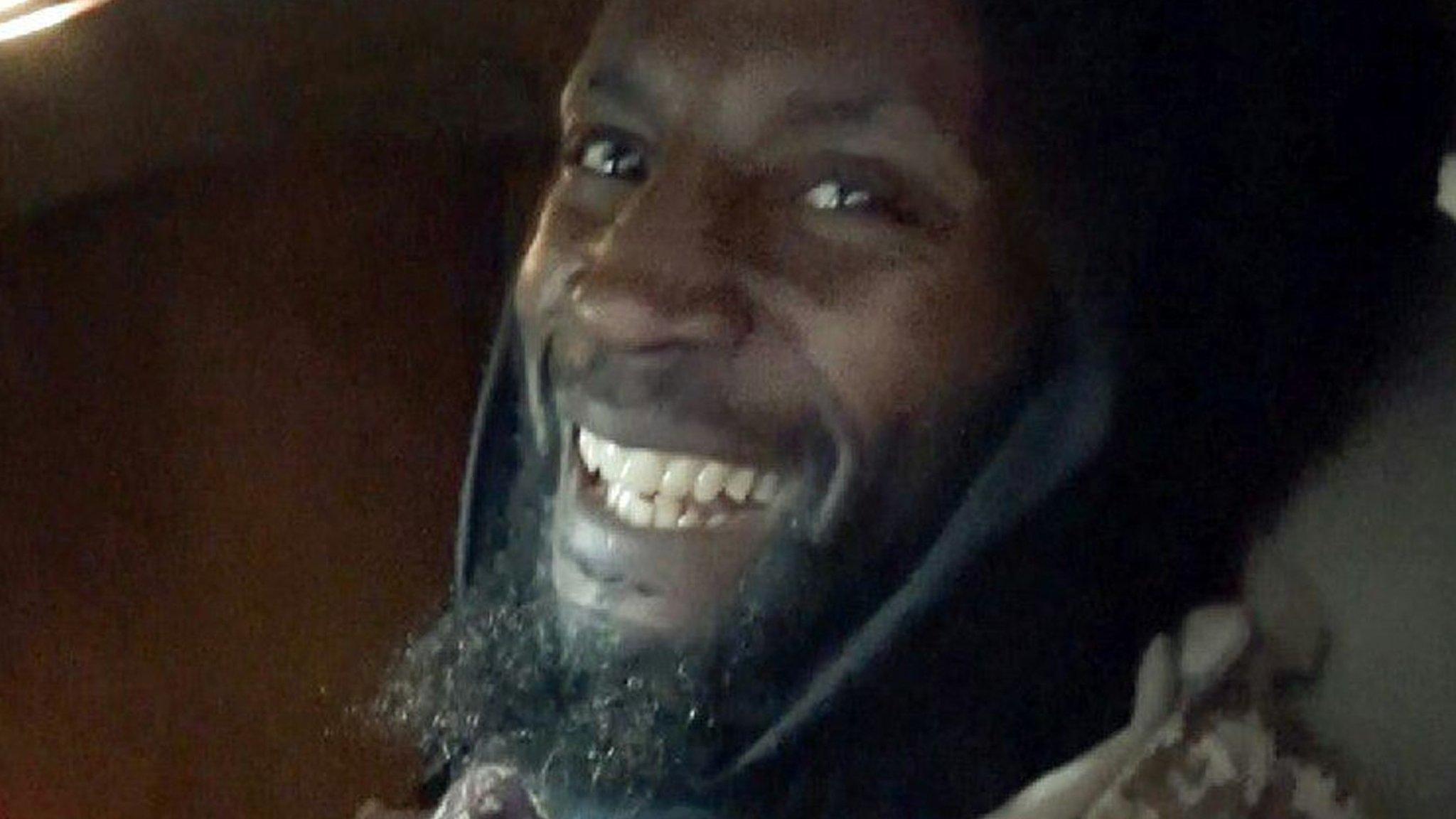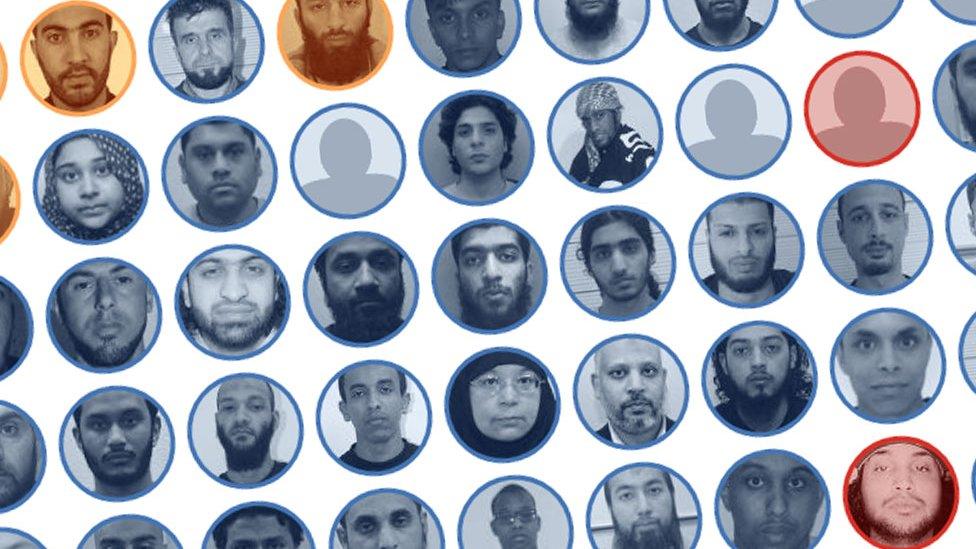Family of British IS bomber deny £1m compensation payout
- Published
UK bomber's path from Guantanamo Bay to Mosul
The family of a British IS fighter who carried out a suicide attack in Iraq deny he received £1m in compensation after being freed from Guantanamo Bay.
It has been reported by the Daily Mail, external that Jamal al-Harith received the payout from the UK government after being freed from captivity in 2004.
The family say that figure was "a group settlement including costs for four innocent people including Jamal".
The Daily Mail says it stands by its story.
Al-Harith, who was 50 and from Manchester, was originally known as Ronald Fiddler.
He took the name Jamal al-Harith when he converted to Islam, but was known most recently by the nom-de-guerre Abu-Zakariya al-Britani, given to him by so-called Islamic State.
Al-Harith was handed over to American forces in Afghanistan in early 2002, before being sent to Guantanamo Bay - a US prison in Cuba for terrorist suspects.
US interrogators found he provided useful information about the Taliban's methods, and he was released after two years.
He later joined IS and blew himself up at an Iraqi army base in Mosul this week.

Analysis, by Frank Gardner, BBC security correspondent
Jamal al-Harith spoke in 2004 to the BBC's North West Tonight
In the light of how he chose to end his life, the case of Jamal al-Harith is certainly embarrassing for those in government in 2004 and 2010, and for those whose job it was to assess the security threat he posed between 2004 and 2014.
But his lawyer has told me that when al-Harith returned from his two years' imprisonment in Guantanamo Bay in March 2004, he had already been so extensively questioned that his interview with British special branch officers lasted just 20 minutes before charges were dropped and he was released.
He was assessed - correctly at the time - of being a low security risk to the British population and he spent the next 10 years living openly in and around Manchester with his young family, showing no signs of violent extremism.
At some stage, probably around 2013, he became sufficiently radicalised, or even re-radicalised, to go off to Syria to join IS. It was this that MI5 failed to pick up.

In a statement, al-Harith's family said they wished "to express their sorrow and distress at the news of his death", but were "concerned about the distorted and over-simplified reports they have seen in the news".
"The Jamal they knew up until 2001 when he was taken to Guantanamo Bay would not have become involved with a despicable organisation such as so-called Islamic State. He was a peaceful and gentle person," it continued.
"Whatever he may or may not have done since then they believe from their own experience he was utterly changed by the physical and mental cruelty and the inhuman treatment he endured for two years at Guantanamo."
His relatives insisted he did not receive £1m in compensation, adding: "The family last heard from him in 2014 and have since then been desperately worried about his fate."

Brother: 'None of us could have changed his mind'
The brother of a British suicide bomber says his family were powerless to stop him
Leon Jameson, al-Harith's older brother, says they last spoke two years ago on the phone, before he went to Syria.
Mr Jameson described his sibling as "fun" when he was growing up and "always helping other people".
When asked about his brother's suicide bombing he said: "I can't actually commend him about it because it isn't right, but he's done it. It's something he believes in, so I'll leave that with him.
"He did what he could for other people, which is what he used to always be like.
And he said "it had been a struggle" for his brother ever since Guantanamo Bay. "If he didn't even listen to his wife, none of us could have really changed his mind."

Former Prime Minister Tony Blair released a statement accusing the Daily Mail of "utter hypocrisy" after it ran a story about al-Harith on Wednesday headlined: "Still Think He Wasn't A Danger, Mr Blair? Fury at Labour government's £1m compensation for innocent Brit".
Mr Blair said the man's release in 2004 had "followed a Parliamentary and massive media campaign led by the Daily Mail, external... and strongly supported by the then Conservative Opposition".
The former PM continued: "He was not paid compensation by my government. The compensation was agreed in 2010 by the [coalition] government..."
In response, the paper issued a statement saying Mr Blair was "utterly wrong to accuse the Daily Mail newspaper of inaccuracy over the Ronald Fiddler story".
"However, our sister organisation MailOnline, which is an independently edited website, did publish a misleading headline which said that Mr Blair's government was responsible for the £1m payout to Fiddler.
"This ran briefly and has since been removed and corrected. MailOnline apologises for this mistake."
It added: "The fact remains that the actions which led to this payment were all the responsibility of Tony Blair."
- Published22 February 2017

- Published21 February 2017

- Published12 October 2017
